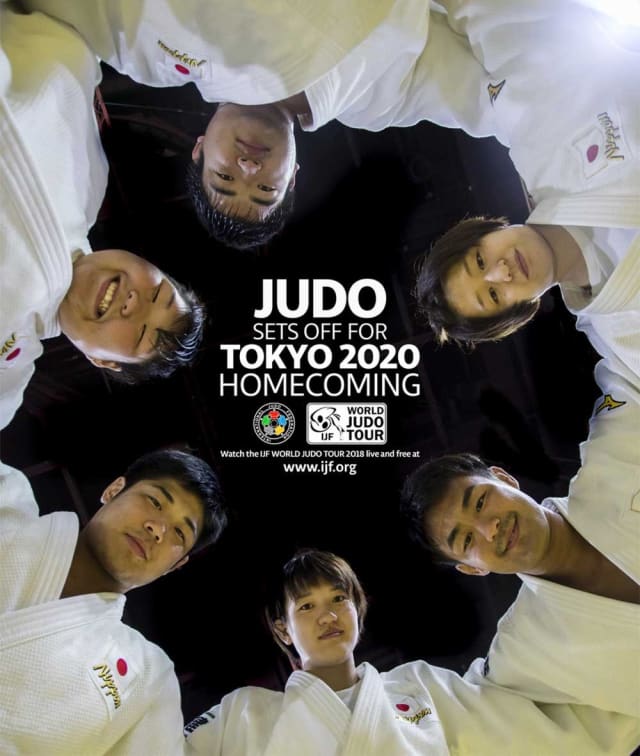Tokyo is an Olympic city, once and again.
Paris is an Olympic city, too. Before and yet-once-more.
But — and as with many things, honesty is the best policy — it’s different when Tokyo really is an Olympic city, as it will be in 2020, or Paris will be an Olympic city, as it will be in 2024. For the athletes. For the fans. For everyone and everything.
We dream Olympic dreams. All of us. All around the world.
And not just in judo. In every single one of the dozens of the sports on the Olympic program.
Track and field has meets, and world championships. Swimming, too. Archery. Badminton. Of course, judo.
Why is it different — why are the emotions heightened — when it’s the Olympics?
As the road to the Olympic podium begins anew, as the cycle begins all over again for the judo family worldwide, with qualifying for the Tokyo Summer 2020 Games set to kickoff in May in Hohhot, China, now is perhaps thus the time to ask: Why is this? Why do the Games have this hold on our imagination?
The answer is both easy and incredibly complex.
It’s a combination of history, patriotism, pressure and, of course, time.
Everyone knows the Olympics are a modern version of a festival that originated in ancient Greece and that carried on for thousands of years before being revived by the French baron Pierre de Coubertin.
The interlocked five Olympic rings are the most recognizable symbol on Planet Earth. Indeed, the Rio 2016 Games drew an audience of 3.6 billion viewers — one of every two human beings.
The opening ceremony stirs within each of us the universal yearning for peace in our fragile world.
The patriotic element that is at the root core of the Olympics brings about a mixture, as social scientists always point out, of love for one’s country along with belonging, support and loyalty.
Then come pressure and time.
The Olympics — for this purpose, a Summer Games — comes around once every four years.
The judo tour, for instance, is recurring. There is an annual world championship. Same for many other sports. Not the Summer Games. Once every four years.
And then: Typically, it’s four years for maybe two minutes: For most sports, it can be over in maybe two minutes — a track or swim race, maybe even the first appearance on the tatami.
What does that mean? It’s not enough to be great, to conquer your nerves, to summon your will, to bring your best. You have to do all those things at the right time on the right day — or wait four more years, if you are lucky enough to get a second chance, which hardly anyone is.
Four years in two minutes. Brutal. Or maybe excellence and greatness for billions across the world to witness.
The elite of the elite — those who can claim gold at the Olympics — know that the very best of the best are all great physically.
The difference is emotional and mental: it is those who have trained for every eventuality, who have practiced and practiced and practiced some more, who step onto the tatami with a balance of excited readiness and yet great calm who are ready to become Olympic champions.
As the incomparable Teddy Riner said upon winning Olympic gold, again, in Rio in 2016: “Today I had a good sensation. For every competition, I feel a little pressure. But the pressure is good for a big day.”
By Alan Abrahamson



